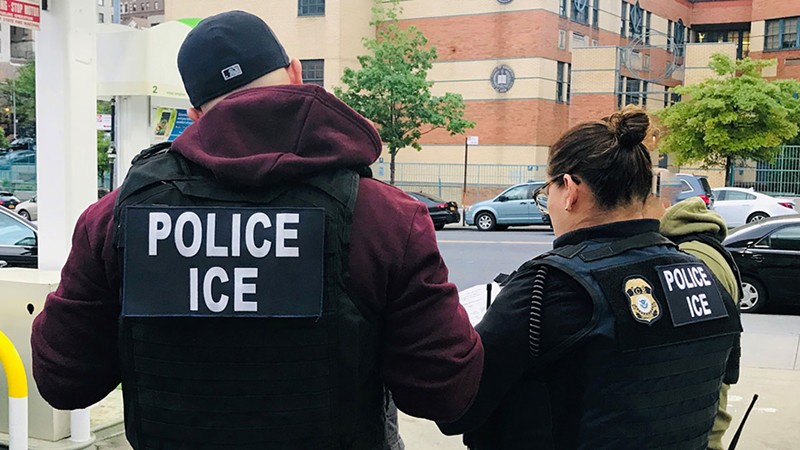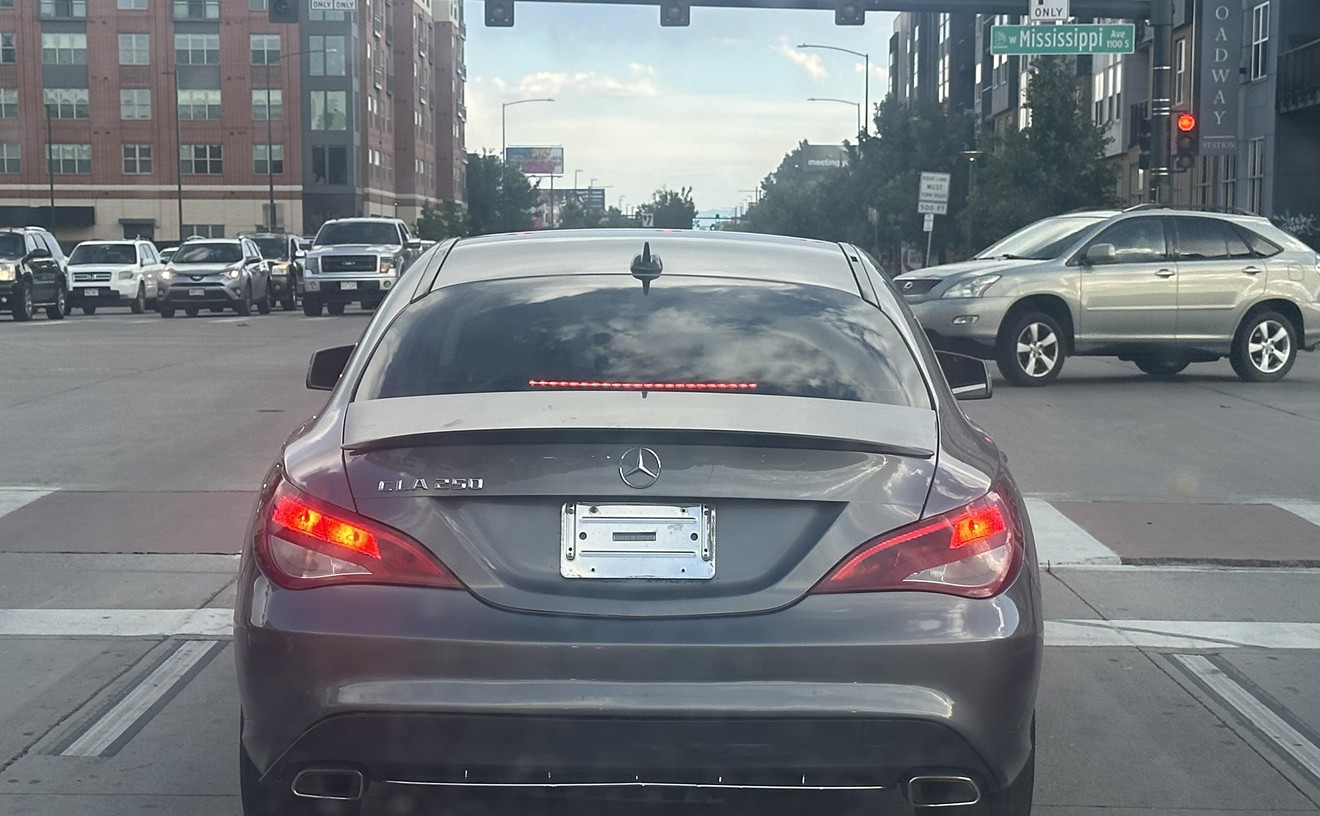Following a heated December 21 study session, Aurora City Council rejected a proposed ordinance that sought to create protections for undocumented immigrants and would have limited city employees from assisting immigration authorities.
"I think that this ordinance is really unnecessary at this time," Mayor Mike Coffman said just before the vote.
The councilmembers split 5-5 on that vote, with the five Democrats on council in favor, while the four Republicans and one independent voted against it. Coffman did not officially cast his tie-breaking vote, but simply announced that the proposal had failed.
Even so, the co-sponsors of the ordinance, councilmembers Crystal Murillo and Alison Coombs, plan to formally introduce the ordinance at a full city council meeting in early 2021. "Our goal is to support our immigrant community to create a perception of safety in our community," Murillo said.
The session, which preceded the Aurora City Council's official December 21 meeting, featured dueling testimony from a top Colorado Immigration and Customs Enforcement official and Arash Jahanian, a high-profile lawyer from an immigration and civil-rights law firm.
Jahanian, who works at the Meyer Law Office, testified that the ordinance wouldn't affect the Aurora Police Department's ability to assist federal immigration authorities with criminal law enforcement, but would only restrict the department's cooperation when it comes to civil immigration enforcement. Denver has a similar policy on the books.
The ordinance also called for prohibiting ICE officers from entering city-owned or -operated buildings for an immigration investigation without a warrant signed by a judge. And it sought to prevent the City of Aurora from entering into any contracts with ICE that would deputize city employees to work on immigration enforcement.
Finally, the ordinance would have codified an unwritten policy that instructs city employees, particularly police officers, to not ask for immigration information.
Three councilmembers who spoke against the proposal repeatedly characterized it as an attempt to turn Aurora into a "sanctuary city."
"I am really concerned from a public-safety perspective, and I represent southeast Aurora. Many of my residents have reached out to me. They don’t want us to be a sanctuary city, and they do want us to cooperate with federal agencies," said Councilwoman Francoise Bergan.
"Calling it other than a sanctuary city, it’s a little bit...silly," said Councilman Dave Gruber. "It’s a sanctuary city bill."
Gruber got into a back-and-forth exchange with Jahanian, whom he referred to as "the Denver lawyer." Jahanian responded by pointing out that his firm often represents individuals detained at the Aurora ICE Contract Detention Facility who are Aurora residents. That facility is run by private prison company GEO Group.
Gruber had invited John Fabbricatore, director of the Denver ICE Enforcement and Removal Operations Field Office, to share his perspective. "It hurts the community," Fabbricatore said of laws that limit cooperation between local law enforcement and ICE. "Years ago, our relationships were much better before some of these laws came into effect."
In 2019, the Colorado Legislature passed a bill that prevents jails and police departments from holding on to individuals past the time when they'd normally be released solely so that ICE could pick them up on other charges.
Fabbricatore and Jahanian also offered competing testimony on the types of people held at the Aurora ICE facility. Of the 286 detainees currently held at the facility, 88 percent have a criminal conviction, according to Fabbricatore, who noted that eight of those individuals have murder convictions and one has been convicted of terrorism-related offenses.
It would become harder to detain people with serious criminal charges if Aurora police weren't allowed to arrange a transfer with ICE, Fabbricatore said. As a result, ICE officers would need to arrest individuals in the community. "We may arrest multiple [people at their home]. We may arrest multiple people at a work site," Fabbricatore warned.
In response, Jahanian pointed out that plenty of the people in the Aurora ICE facility have minor criminal charges or convictions, such as driving without a license; during the COVID pandemic, some of those with more minor violations are not being detained, which skews the numbers (the facility can hold up to 1,500). And many arrests are already occurring in the community: "They’re picking up wives, and brothers, and other family members inside a home. They’re doing it already," Jahanian said.
Murillo is still hopeful for the proposal's chances; she plans to reach out to councilmembers Angela Lawson and Curtis Gardner, neither of whom spoke during the study session, to see if any issues they might have can be resolved.
The study session ran so long that the second ordinance Murillo and Coombs are co-sponsoring, which seeks to create an immigrant legal defense fund to help cover the cost of legal representation for Aurora residents detained by ICE, never came up for discussion. That, too, will be kicked to early 2021.

Audio By Carbonatix
[
{
"name": "Air - MediumRectangle - Inline Content - Mobile Display Size",
"component": "12017618",
"insertPoint": "2",
"requiredCountToDisplay": "2",
"watchElement": ".fdn-content-body",
"astAdList": [
{
"adType": "rectangle",
"displayTargets": "mobile"
}
]
},{
"name": "Editor Picks",
"component": "17242653",
"insertPoint": "4",
"requiredCountToDisplay": "1",
"watchElement": ".fdn-content-body",
"astAdList": [
{
"adType": "rectangleLeft",
"displayTargets": "desktop|tablet"
},{
"adType": "rectangleRight",
"displayTargets": "desktop|tablet|mobile"
}
]
},{
"name": "Inline Links",
"component": "18838239",
"insertPoint": "8th",
"startingPoint": 8,
"requiredCountToDisplay": "7",
"maxInsertions": 25
},{
"name": "Air - MediumRectangle - Combo - Inline Content",
"component": "17261320",
"insertPoint": "8th",
"startingPoint": 8,
"requiredCountToDisplay": "7",
"maxInsertions": 25,
"watchElement": ".fdn-content-body",
"astAdList": [
{
"adType": "rectangleLeft",
"displayTargets": "desktop|tablet"
},{
"adType": "rectangleRight",
"displayTargets": "desktop|tablet|mobile"
}
]
},{
"name": "Inline Links",
"component": "18838239",
"insertPoint": "8th",
"startingPoint": 12,
"requiredCountToDisplay": "11",
"maxInsertions": 25
},{
"name": "Air - Leaderboard Tower - Combo - Inline Content",
"component": "17261321",
"insertPoint": "8th",
"startingPoint": 12,
"requiredCountToDisplay": "11",
"maxInsertions": 25,
"watchElement": ".fdn-content-body",
"astAdList": [
{
"adType": "leaderboardInlineContent",
"displayTargets": "desktop|tablet"
},{
"adType": "tower",
"displayTargets": "mobile"
}
]
}
]












